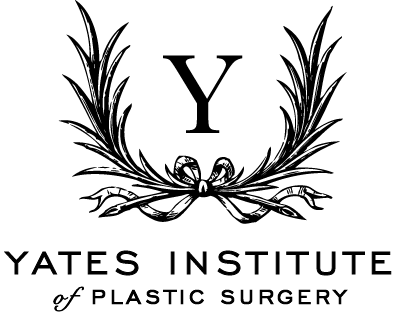Postoperative care after plastic surgery
Any plastic surgery comes with an emotional load, questions, fears, expectations, and most of the time, postoperative recovery recommendations are overlooked.
While most patients feel ready to return to their day-to-day activities earlier than three weeks after surgery, skin tissues need time to heal.
Postoperative recovery differs depending on the type of surgery and the particularities of each body, going back to social and professional activities being possible after a few days (in case of liposuction), after 1-2 weeks (for breast surgery, abdominoplasty, blepharoplasty), or after 2-3 weeks (in case of rhinoplasty or facelift).
To make your life easier, here are some valuable tips to follow after any plastic surgery:
Always follow your doctor's advice
Check in to all postoperative hospital visits
Get a lot of sleep and rest
Eat only easily digestible foods and hydrate accordingly
What Happens After the Plastic Surgery?
Before being discharged from the hospital, the surgeon will check the wound and change the bandage.
Remember, it is normal to feel discomfort or numbness around the wound in the first few days. To make you feel as comfortable as possible, your plastic surgeon will prescribe anti-inflammatory and analgesic medication.
In the first few days after surgery, it is recommended to use them regularly or at the first sign of discomfort, depending on your doctor's prescription. If the pain suddenly worsens, let your doctor know immediately as this could be a sign of infection.
The wound can also cause itching for a few days after surgery. This is usually a common stage in the healing process. However, it could be a sign of problems such as infections or stitches that are too tight. Alert the surgeon if you feel uncomfortable and avoid scratching the incision areas.
How to Care for Your Surgical Incisions at Home
Once you are free to leave the medical facility and arrive home, you will need to look after your surgical incisions yourself.
Make sure that the wound is clean and dry in the first 72 hours after the operation, which means avoiding bathing, showering, or swimming completely. Your surgeon will let you know when you are able to take a shower or enter the pool again.
If you still had a bandage on your wound at discharge, you will need to change it every day or every two days, depending on your doctor's recommendation. You will also need to inspect in detail for red spots, leaks, swelling, or loose stitches. Tell your doctor immediately if any of these symptoms are present.
To avoid infection, the bandage must be kept clean and dry at all times. Keep in mind to wash well with soap and water before and after touching or changing the bandages. Avoid touching wounds unnecessarily until the incision is completely healed.
What Not To Do During Recovery Time
In the first days after surgery, physical activity should be reduced to the minimum; this includes demanding sports and sexual activities. See below what other things to avoid:
Avoid any medication that may increase bleeding, such as over-the-counter medications and herbs: vitamin E, acetylsalicylic acid, and anything else that has not been approved by your doctor.
Avoid hot baths in the tub for at least four weeks after the surgical procedure. This is because the incisions are not yet fully closed, and the tub water may cause infections.
Bathing in swimming pools or jacuzzi should be avoided for at least four weeks after the plastic surgery.
Do not try to peel off the bandages on your own, and they will come off on their own at the right time. Their premature elimination could delay healing but also facilitate the appearance of infections.
Avoid sun exposure 2-3 months postoperatively.
Do not smoke or drink alcoholic beverages.
What To Eat After the Surgery
Surgery causes many changes in the body, leaving a mark on the digestive system, energy levels, and how the body reacts to various inflammations. After surgery, the body needs extra fuel for the cells to regenerate and restore normal energy levels.
Optimal nutrition is also an important part of the recovery process. Read on to learn what are the best foods to eat while in postoperative care:
Fiber
Painkillers, antibiotics, anesthesia, and lack of physical activity may cause stomach problems and constipation, causing discomfort and sometimes pain. After surgery, stay away from all processed foods, sweets, and dairy products to avoid constipation. Patients undergoing surgery are advised to eat high-fiber foods to avoid digestive problems. Fiber is found in oatmeal, fruits, and vegetables, whole grains.
Lean protein
Lean protein during recovery is ideal because it can be easily digested and helps regenerate tissues that have been affected during the procedure. Among the best sources of lean protein are eggs, seafood, vegetables, and whey protein. Nutritionists recommend avoiding red meat and dairy products to avoid constipation during recovery.
Vitamins
For a quick and uncomplicated recovery, patients must ensure that the body is fed the right nutrients.
Vitamin A is ideal for regenerating soft tissues and helps reduce inflammation.
Vitamin C is needed for the synthesis of collagen, which contributes to healing and helps strengthen tissues.
Vitamin K helps avoid blood clots and reduces swelling.
Vitamin A can be found in sweet potatoes, carrots, kale, melon; excellent sources of vitamin C are citrus fruits, broccoli, kale, and berries, and vitamin K can be taken from green vegetable, fish, chicken, and avocados.
Water
Hydration is important when recovering from any surgical procedure. Remember that it is important to drink plenty of water and non-alcoholic beverages throughout the day to keep your body hydrated. You can also include many fruits, such as watermelon or strawberries, which help you hydrate but also help the body to heal quickly.
Final Words
Do not hesitate to talk to your doctor about any concerns about postoperative care. Most doctors provide a list of things that are allowed and prohibited before performing the procedure. Remember that each patient has an unique healing process that takes a certain amount of time and comes with specific issues.


